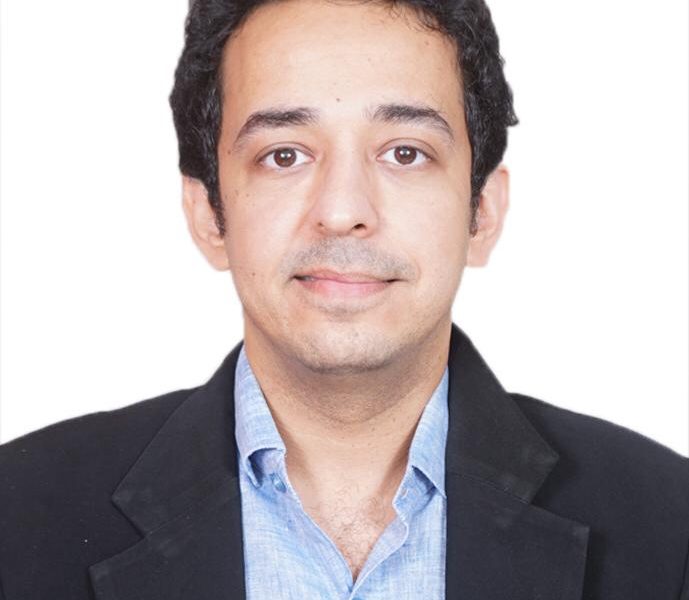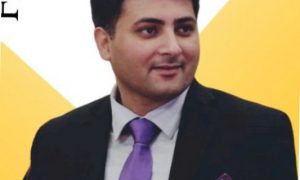This interview has been published by Prabhjot Singh, Priyanka Karwa and The SuperLawyer Team
Disclaimer- The views and opinions expressed in this Q-A discussion are those of the author and do not necessarily reflect the official policy or position of the company they work for.

Would you like to tell our audience about what motivated you to choose law as a career?
For me becoming a lawyer meant learning about negotiation and people management, two of the really important skills to succeed in life.
Nishant, we all have our struggle stories to share, and I mean not struggle specifically but yeah the obstacles that one has to overcome, would you mind throwing light upon those?
One obstacle rather a challenging situation that I faced in my last role as an in-house counsel in the current company was leading a global project that involved folks mostly from medical background basically non-lawyers and this was difficult because we all were responsible to ensure that research trials continue without any hiccups due to this transition.
I had to make a lot of effort to understand the science behind trials , identify relevant stakeholders and also define a governance process without undermining my counterparts from medical team. This experience gave me lot of confidence to not only design & lead projects of global significance but also work across divisions and functions to achieve success.
These compliance processes have been there since a long time, but a sudden increase was noticed post-covid, what do you think can be the reasons for it?
COVID 19 created frankly a perfect storm of economic pressure and operational disruption…hackers infiltrating your network or attack against corporate data science or not using IT assets for its intended purpose/ cutting & pasting data from one application to another! In other words, pandemic created new risks that business might not have had to worry about before and impact is to an extent that these risks now exceed whatever controls you previously used.
Today the need of the hour is develop a sustainable compliance framework- one that can track/measure new risks and in parallel test and document controls as necessary, and guide remediation efforts. Most importantly, business should make proactive efforts to integrate compliance into operations because many times business change their approach/strategy without involving compliance and this means existing internal controls no longer fit their original purpose.
In post COVID 19 world this thought process is needed to stay ahead of competitors and ensuring compliance with policies.
People say in-house counsel should also have a business acumen, maybe if we can call them an “All Rounder” here, what are your views on the same Nishant?
We live in world that requires us to embrace and plan for change. Same goes for in-house counsel. The common perception was ‘legal is reactive and not proactive’. But now what I see is with time its the legal function that often bears the maximum burden of changes that companies go through…all this while coping with constant demands for greater efficiency/productivity and cost savings.

The role of the in-house lawyer has evolved into new areas such as Govt. Affairs, Audit and Compliance reporting, CSR etc… this is more than just a change of job title, it’s an acknowledgment that your in-house counsel is part of C-suite. This also conveys the strategic nature of legal function and the contribution it makes to company’s growth.
Nishant, do you think India has been following up sincerely with the GDPR regulations/privacy protocols or like me you are also of a view that it was violated during the covid times?
Data is the new currency and it only makes sense for companies to invest in protecting their data. India in my view seems to be on right track as outlook towards privacy has changed considerably in privacy space and this is largely because of a collaborative approach by govt and private companies. However to continue with this momentum we need to invest heavily in technology and associated controls to meet privacy requirements faster.
Not everyone has the ability to navigate through different regulations, but you do that so well, what are the strategies for the same that you apply constantly in your routine?
Stay informed, attend online events to keep a tab regarding changes in regulations. Some online/in person conferences can really provide useful insights. Subscribe to blogs and newsletters. Join industry associations, its a great way to stay connected with changes in your field.
How do you maintain the work-life balance Nishant?
I actually like to term it as work-life integration because this will bring several aspects of work life such as work, family, well-being under same roof. I can choose to manage personal tasks during work hours and vice Versa. The biggest plus I see with this approach is flexibility eg. allowing me coordinate my schedule and responsibilities more productively.
Let tips in my experience:
a) Learn to say no- very important part of setting boundaries
b) ask for flexibility- open conversation about your needs vs. your employer/team needs can lead to win-win scenario
c) make space in your schedule for family time
d) always remember your work and managers can wait but your friends/family and personal milestones will not.
Nishant, being a mentor yourself, please give a few pieces of advice for our readers?
Mentorship does not have to be a formal process but in our field it’s a crucial form of support for budding lawyers/law school students. Its important to recognise that a mentee places a lot of trust so a mentor should take out time of their schedule to help mentee develop and grow. But its equally important that mentee also assumes responsibility for learning because a mentor can only give you tools and guidance.
Lastly recognize that the mentor maybe phenomenal but will have a limit to the knowledge and abilities, its important to not get upset or disappointed because your mentor cannot answer all questions but make the most of their time and knowledge in areas where they can.
Get in touch with Nishant Chaturvedi-
























